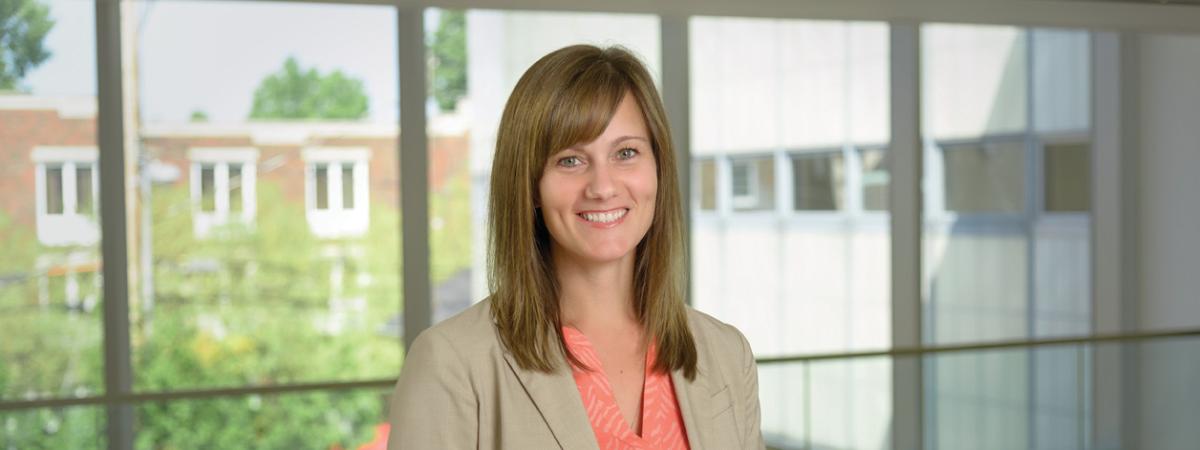When the city of Cleveland launched ambitious plans to scale up mental health services for residents, it turned to the nonprofit Frontline Services and Case Western Reserve’s Center on Trauma and Adversity for help.
Megan Holmes, PhD, associate professor at the Jack, Joseph and Morton Mandel School of Applied Social Sciences and the center’s founding director, helped ensure the effectiveness of the training at the city’s 22 recreation centers that highlighted how poverty and stress affect child development. The goal was to implement a new approach to increase awareness about the ways trauma affects the centers’ staff and young visitors.
After the initial training, a rec-center staffer recounted an incident when a teenager became disruptive. Instead of automatically kicking the boy out, staffers recalled a catchphrase from their sessions with the center: “toxic stress.”
Realizing the boy’s behavior stemmed from whatever happened to him before he arrived, the staffer grabbed a basketball and invited the boy to play—identifying and calming the situation.
“That’s what we want to continue to see,” Holmes said. “It’s helping staff recognize that they’re not bad kids and how to better work within the context of these kids being dysregulated.”
Holmes said the collaboration was a natural fit for faculty in the social sciences.
“Our research is all about being in the community,” she said. “And any of the research that we do, we make sure we’re partnering with the people that the research is intending to serve.”
By Liz Leyden
This story appeared in the Fall/Winter 2022 issue of Think magazine. Read more stories from the magazine.





